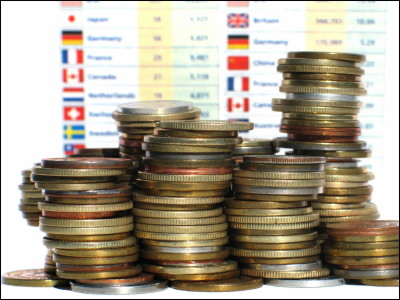The more you earn, the more happy you can be with an annual income of up to 6.5 million yen.

According to a survey by Princeton University , for people with an annual household income of $ 75,000 or less, income is proportional to emotions such as 'joy' and 'satisfaction,' whereas when it exceeds $ 75,000, ' It became clear that the more you earn, the more happy you become. '
This $ 75,000 amount seems to be the threshold at which 'work stress and the length of time spent on work' and 'things and experiences that can be bought with the money earned' cancel each other out.
After $ 75,000, Money Can't Buy Day-to-Day Happiness
https://www.medicinenet.com/script/main/art.asp?articlekey=119440
If you can't be happier than a person with an annual income of 6.3 million yen even if you devote yourself to work and earn 10 million yen a year, you may think that there is no point in working hard and it is barren, but this is just When talking about 'satisfaction and happiness in everyday life,' when you self-evaluate your entire life, for example, a person with an annual income of $ 120,000 has a higher self-evaluation than a person with an annual income of $ 75,000, and the annual income is 16. People with $ 10,000 say they are more 'satisfied with their lives' than people with an annual income of $ 120,000.
Professor Angus Deaton, who specializes in economics and international relations at Princeton University, said, 'We need to consider that the word happiness has a broad meaning. When we look at our lives as a whole, While there is 'happiness' in the sense that it can be evaluated as being successful, there is also 'happiness' in the sense of what is the state of mind at this moment and whether or not you are satisfied with your heart in your daily life. The happiness in the latter sense does not improve even if you earn more than 75,000 dollars a year, but the happiness in the former sense and self-evaluation of life are only for high-income earners. Even if you look at it, it goes up in proportion to your income. '
A study published in the Bulletin of the American Academy of Sciences surveyed 450,000 Americans in 2008 and 2009 on household income, emotional status the day before the survey, and self-assessment of life and life Gallup-Healthways Well- Using the data from the Being Index , we investigated the relationship between two types of 'happiness' and income.
Professor Deaton says that 'happiness' in the sense of the psychological state of the day is different from 'happiness' in the sense of satisfaction with life. For example, the day before the investigation, some people happened to be scolded by their boss or got a ticket for speeding, which made them feel unwell, but they were generally satisfied with their entire life. Some people feel good because they went out with friends and family the day before and had some fun, but when they evaluate their lives, they are not satisfied.
Which of the two 'happiness' is more important is a philosophical question and will depend on individual values, says Professor Deaton. 'It's a very difficult and deep problem, and both happiness are important. For a person who feels sad at this moment, even if his life as a whole is going well, that doesn't mean that his sadness is dispelled. So '
Many social scientists and psychologists have sought a way to measure 'happiness', but this study is 'the feeling of happiness at this moment' and 'whether you think your entire life is happy'. By analyzing these two aspects separately, happiness in the long run continues to rise with income even for high-income earners, but the momentary happiness that you feel every day starts at an annual income of $ 75,000. The interesting result is that even if you increase your income, you will not be able to increase it.
This result is in line with the results of various studies that have investigated the relationship between income and happiness so far, and not only in the United States, 'income affects happiness until it reaches a certain amount, but at a certain amount It seems that various data suggest that happiness will not increase even if you earn more than that.
For reference, the average annual household income of $ 75,000 in 2008 was $ 71,500, while the median was $ 52,000. It was said that. Only a few millionaires are pushing up the average, so let's focus on the median.
Considering that the 'poor' are those whose annual household income is less than half of the median, that is, those with an annual income of less than $ 26,000, the annual income of $ 75,000 is about three times that. Is it an image of income that allows you to live a relatively wealthy life without any trouble, such as income that allows you to enroll your child in a private school or buy a house with a loan? In Japan, the average household income in 2008 was 5,562,000 yen, and the median of all households was 4,480,000 yen. The annual income in Japan is likely to be about 6.46 million yen.
In addition, the psychological effects of negative events such as 'illness' and 'divorce' are that low-income people receive more damage from the same events than high-income people, and conversely, 'change of mood' such as weekend leisure. And how much you can be encouraged by 'a little good thing', it seems that it became clear that high-income earners tend to get more happiness from the same event than low-income earners.
“In every aspect, life is tough for the poor,” says Professor Deaton.
Related Posts:
in Note, Posted by darkhorse_log







